Biomedical Engineering
-

The 20 most popular research stories of 2017
New clues to Alzheimer's disease, helping kids deal with stress, understanding why our universe is three-dimensional and—of course—electric eels all appear in this year's look back on the research stories that were visited the most frequently on Vanderbilt's website in 2017. Read MoreDec 15, 2017
-

Shining a light on the nervous system to thwart disease
Researchers believe they can address problems stemming from heart rate, respiration and digestion by untangling which nerves control which bodily functions and then stimulating them with light. Read MoreNov 16, 2017
-
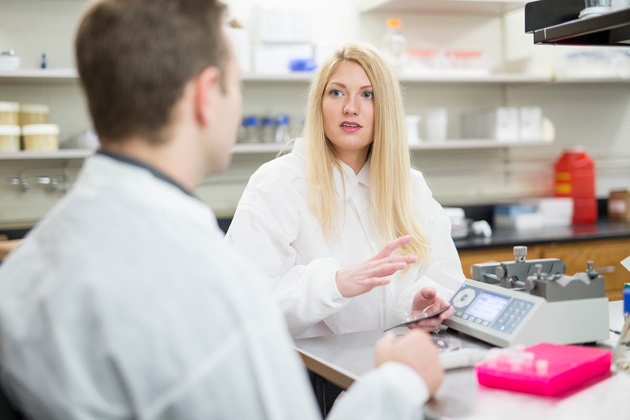
Career ended by devastating crash, cyclist turns toward curing sepsis
Sinead Miller was headed for the Olympic games. Now, thanks to a Department of Defense grant to find new sepsis treatments, the Vanderbilt Ph.D. has developed a device that cleans the blood. Read MoreNov 2, 2017
-

Goal of new tissue-chip research is to assess efficacy of novel epilepsy drugs
An interdisciplinary team of Vanderbilt University researchers has received a two-year, $2-million federal grant to develop an “organ-on-chip” model for two genetic forms of epilepsy. Read MoreSep 20, 2017
-
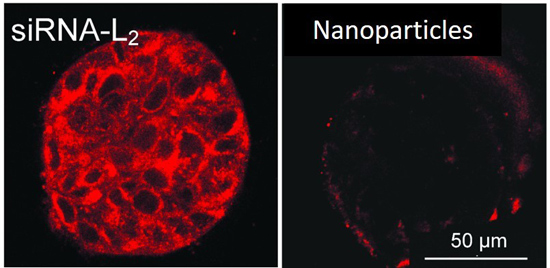
Hijacking human proteins to better deliver anti-cancer drugs
Vanderbilt University engineers find existing human protein is ideal carrier for powerful molecules that can signal tumors to self-destruct. Read MoreJul 24, 2017
-

Ultrathin device harvests electricity from human motion
A new energy harvesting system developed at Vanderbilt University can generate electrical current from the full range of human motions and is thin enough to embed in clothing. Read MoreJul 21, 2017
-
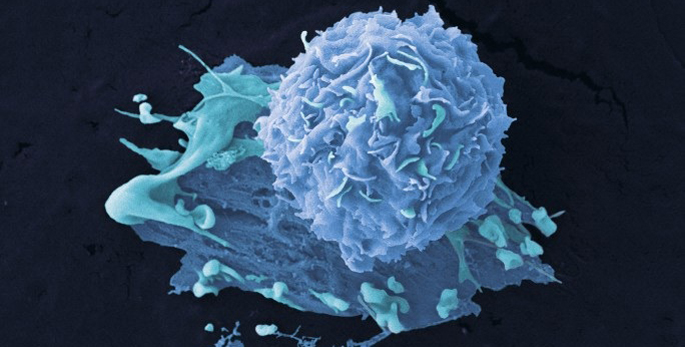
Drivers of breast cancer metastasis
Signaling through a complex of proteins called mTORC2 plays a role in breast cancer migration, invasion and metastasis, Vanderbilt researchers reported. Read MoreJul 20, 2017
-
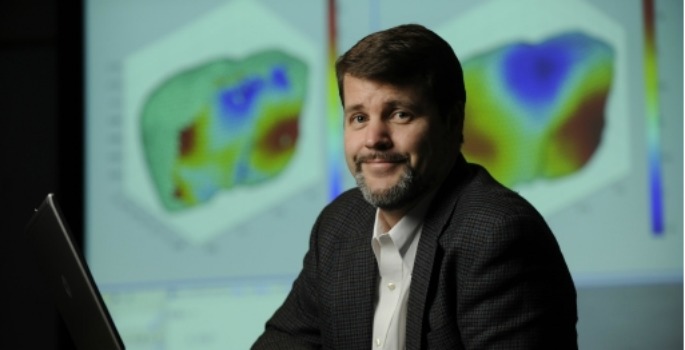
New tools help surgeons find liver tumors, not nick blood vessels
The liver is a particularly squishy, slippery organ, prone to shifting both deadly tumors and life-preserving blood vessels by inches between the time they’re discovered on a CT scan and when the patient is lying on an operating room table. Vanderbilt University’s Michael Miga and his team have published the potential solution. Read MoreJul 17, 2017
-

Device helps ICU patients by filtering out noise from medical alarms
A team of investigators at Vanderbilt University Medical Center (VUMC) wants to improve patient outcomes in Intensive Care Unit (ICU) settings by silencing audible medical alarms in hospital rooms. Read MoreJun 21, 2017
-
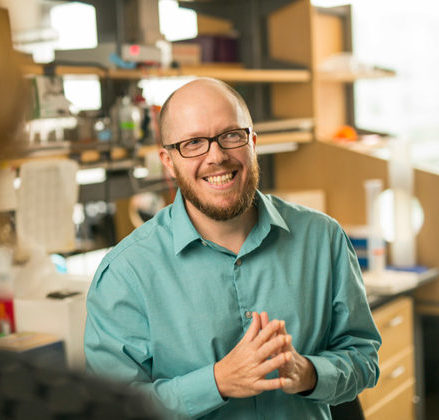
Drug developed for arthritis could be first to stop heart valve calcification
The first drug to treat calcification of heart valves may be one originally designed for rheumatoid arthritis. Read MoreJun 12, 2017
-

VU Inside: Cut the noise! New research making hospital alarms smarter and quieter
VUMC anesthesiologist Joseph Schlesinger is teaming up with undergrads in neuroscience and biomedical engineering to make hospital alarms better, quieter and easier to work with. Read MoreMay 2, 2017
-
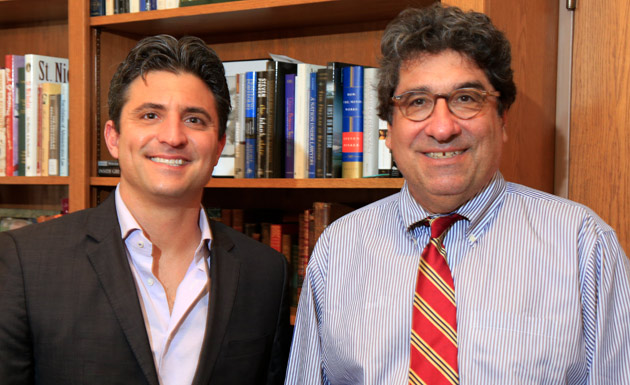
WiseWear CEO discusses marriage of tech and fashion on ‘The Zeppos Report’
Alumnus Jerry Wilmink discusses with Chancellor Nicholas S. Zeppos Wilmink's journey from engineer to entrepreneur and the deeply personal reason he launched his company. Read MoreApr 12, 2017
-

Three students named Goldwater Scholars for 2017
Vanderbilt students Lauren Branscombe, Joshua Fleck and David Zhang have been recognized in this year’s Goldwater Scholars competition. They are among a group of 240 scholars selected on the basis of academic merit from a field of 1,286 mathematics, science and engineering students nationwide. Read MoreApr 6, 2017
-

Nanobeacon lights up colon tumors
A novel fluorescent nanobeacon can distinguish normal from diseased colon tissue, potentially offering advantages for colorectal cancer screening. Read MoreMar 30, 2017
-
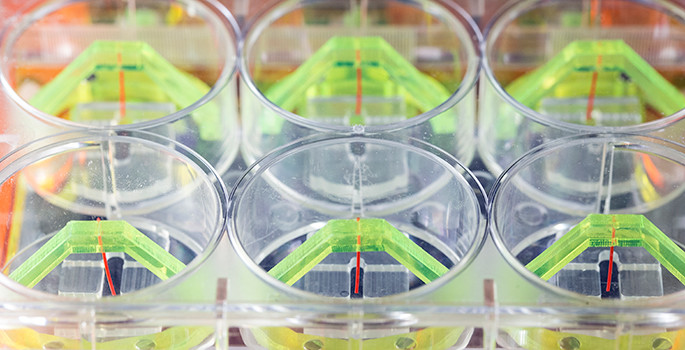
Organ-on-a-chip mimics heart’s biomechanical properties
Scientists at Vanderbilt University have created a three-dimensional organ-on-a-chip that can mimic the heart’s amazing biomechanical properties in order to study cardiac disease, develop heart drugs. Read MoreFeb 22, 2017
-
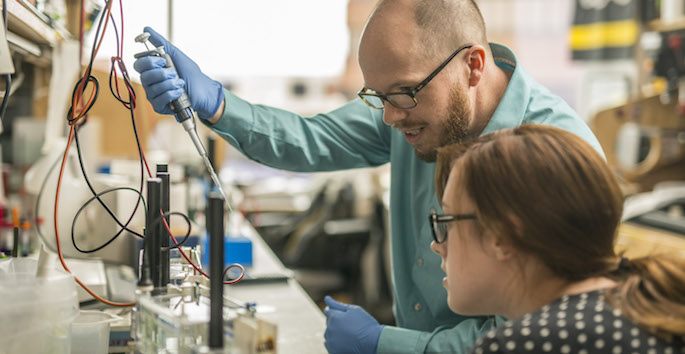
Merryman wins $6M to address heart disease with arthritis drug, fund other research
David Merryman will study how to treat heart disease using drugs originally developed for rheumatoid arthritis and applying the lessons learned from failed weight loss drugs like Fen-Phen. Read MoreFeb 3, 2017
-

Detecting inflammatory bowel disease during a colonoscopy
Vanderbilt researchers have developed a new optical sensor that can accurately detect different types of inflammatory bowel disease and can be easily integrated into routine colonoscopy exams. Read MoreFeb 1, 2017
-
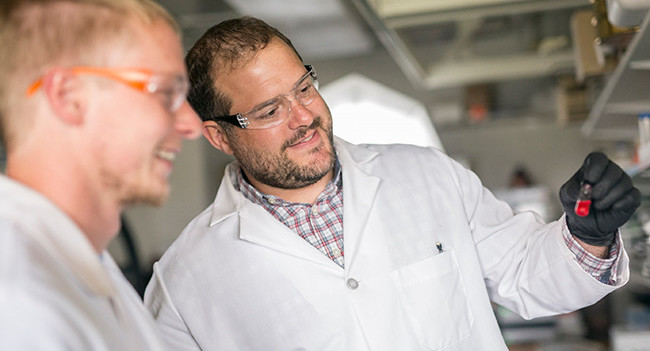
Vanderbilt biomedical engineer receives presidential award for advanced wound healing research
Biomedical engineer Craig Duvall has received a Presidential Early Career Award for Scientists and Engineers (PECASE) to support his research into advanced wound healing technology. Read MoreJan 31, 2017
-
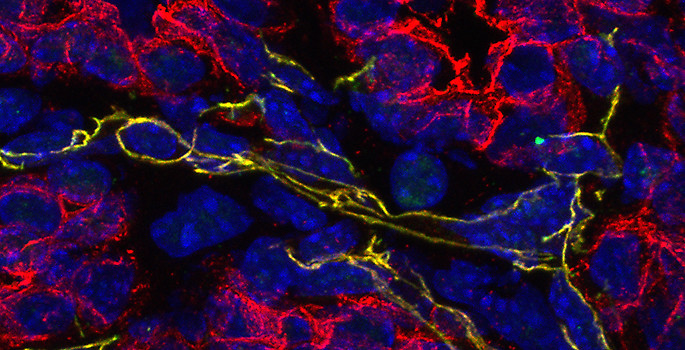
Softening tumor tissue could aid cancer treatments
Tumors cause the intracellular material surrounding them to stiffen. Softening this protective layer could make existing cancer treatments more effective, according to new research. Read MoreJan 16, 2017
-

DNA duplicator small enough to hold in your hand
Vanderbilt engineers have developed a new method for duplicating DNA that makes devices small enough to hold in your hand that are capable of identifying infectious agents before symptoms appear. Read MoreJan 11, 2017